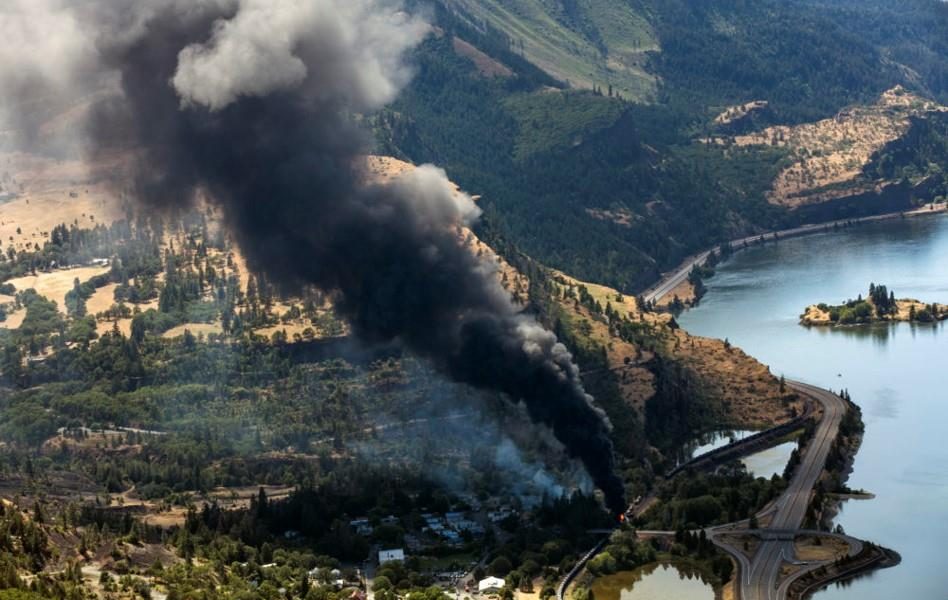Oregon’s environmental regulatory agency needs more staff and funding to keep up with growing demand for its services as climate change escalates, according to a new state analysis.
Auditors from the Oregon Secretary of State’s Office, who published their findings Wednesday, said Oregon’s Department of Environmental Quality is understaffed and lacks resources to take on what is becoming an already large workload as drought, wildfire, flood and air pollution risks increase.
“The escalating effects of climate change and related impacts to environmental quality may outpace DEQ’s ability to provide a high level of service, especially to some of Oregon’s more vulnerable communities,” the auditors wrote. “Related challenges include the agency’s broad scope of work and a growing public demand for services paired with persistent funding limitations.”
They recommended the agency, which is in the process of creating a strategic plan to send to Gov. Tina Kotek in June 2024, address these issues in its plan. The purpose of the audit is to provide feedback and recommendations throughout the planning process, auditors wrote.
Lauren Wirtis, a spokesperson for the agency, said in an email that staff agree with the findings.
“DEQ has a broad scope of authority to protect Oregon’s air, land and water. Each of these issues is getting increasingly complicated as we consider the impacts of climate change and new issues emerge,” Wirtis said.
Low staff
Staffing levels at the environmental agency pale in comparison to other state agencies with similarly broad scopes and demands, the auditors found. The department has funding for about 850 full-time staff. The Oregon Department of Human Services, which handles many crucial social service programs, has a budget for 12 times as many staff, auditors noted. Both the Oregon Department of Fish and Wildlife and the Oregon Department of Forestry also have budgets for significantly more staff than the environmental quality department.
Staffing levels today at DEQ are the same as they were in 2000.
“Some programs have struggled with perennial understaffing that risks severely curtailing their functionality,” the auditors wrote.
As an example, in 2016 when a Union Pacific train carrying crude oil derailed in Mosier along the Columbia River Gorge, just six emergency responders from Oregon’s environmental quality department were immediately deployed to aid in the cleanup. The Washington State Department of Ecology was able to send 70 trained first responders to aid in the clean up. As of spring 2023, Oregon’s environmental department had 11 full time staff dedicated to emergency response statewide.
In interviews with staff, auditors found there were issues of high turnover, difficulty recruiting and retaining experienced staff and frustration with low pay. Additionally, managers said that the expectations placed on staff have become increasingly complex and burdensome as many federal and state standards and rules change, forcing the agency to respond.
Unreliable funding
The department gets a relatively small amount of state general fund dollars compared to other state agencies. Just 12% of its $730 million biennial budget comes from the general fund, and 6% comes from the federal government. More than 80% of the agency’s operations are funded by revenue collected on permit fees.
Staff said in interviews that relying heavily on permit fees is not a stable or reliable source of funding for agency programs, especially because the fees can only be changed by the Legislature. One air quality permit the agency administers remained flat for nearly 20 years. When the environmental department asked the Legislature in 2023 to increase the fee by 83% so the program could maintain its service level, lawmakers instead voted to spread the fee increase across two years, allowing a 43% increase in 2023 and an additional 40% increase in 2024. This decision left the air quality permitting program understaffed and unable to perform some services throughout 2023, according to the report.
Funding for the agency has grown about 27% since 2009 accounting for inflation, the audit found, or under 2% per year. Wirtis, the agency spokesperson, said most of the growth in the budget has directed toward implementing new legislative mandates, such as the Climate Protection Program and Cleaner Air Oregon – which aim to reduce greenhouse gas emissions and air pollution.
“Where our budget hasn’t grown is in DEQ’s long-standing work,” Wiritis said. “This shows up in a variety of ways – permit and enforcement backlogs, limited emergency response resources and overburdening cross-agency programs.”
Agency staff as well as representatives from federal agencies and local jurisdictions interviewed by auditors expressed concerns over how overstretched Oregon’s environmental regulators were, and noted the agency seemed to have far less money to operate on than similar agencies in other states.
The report also found that low level staff in some states were earning more money than managers at Oregon’s environmental quality department. Washington’s Department of Environmental Quality has a biennial budget of more than $860 million for operations – $130 million more than Oregon’s – and nearly $3 billion for capital projects over the next two years.
Oregon Capital Chronicle is part of States Newsroom, a network of news bureaus supported by grants and a coalition of donors as a 501c(3) public charity. Oregon Capital Chronicle maintains editorial independence. Contact Editor Lynne Terry for questions: [email protected]. Follow Oregon Capital Chronicle on Facebook and Twitter.
STORY TIP OR IDEA? Send an email to Salem Reporter’s news team: [email protected].

Alex Baumhardt has been a national radio producer focusing on education for American Public Media since 2017. She has reported from the Arctic to the Antarctic for national and international media, and from Minnesota and Oregon for The Washington Post. She previously worked in Iceland and Qatar and was a Fulbright scholar in Spain where she earned a master's degree in digital media. She's been a kayaking guide in Alaska, farmed on four continents and worked the night shift at several bakeries to support her reporting along the way.










